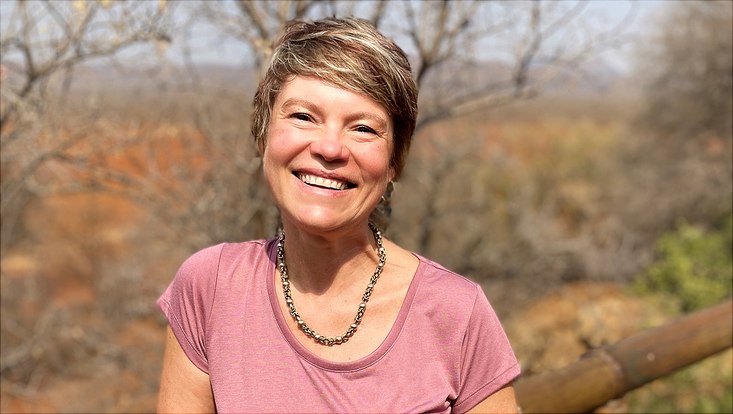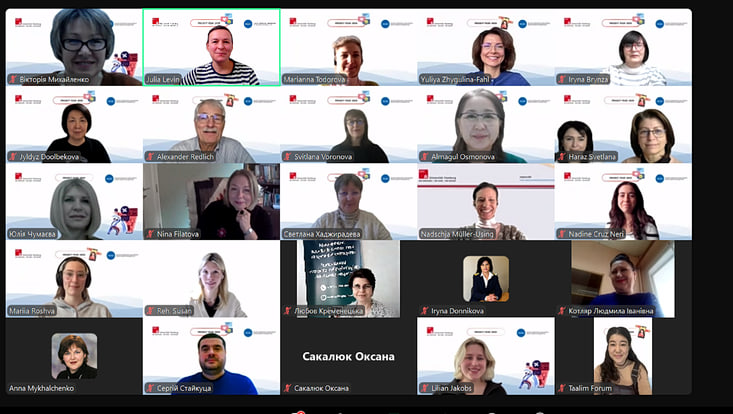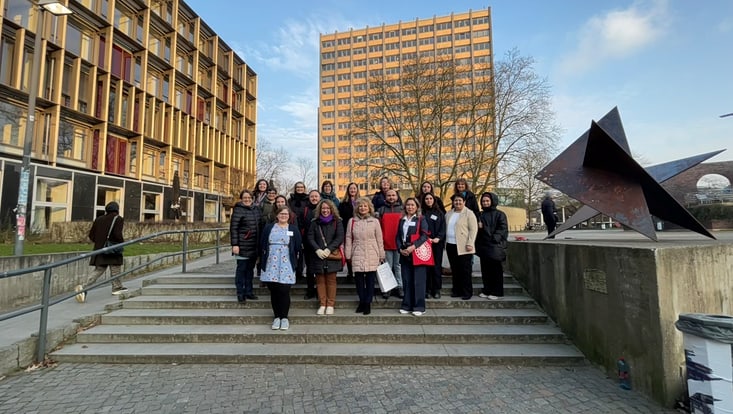"The people at the Faculty are exceptional."
8 July 2022

Photo: UHH/privat
The International Office talked to Prof. Liesel Ebersöhn about her research. Coming from South Africa, Liesel Ebersöhn is a visiting scholar at the Faculty of Education from June to August.
Liesel Ebersöhn is Director of the Centre for the Study of Resilience and full professor at the Department of Educational Psychology, University of Pretoria. Professor Ebersöhn is regarded as a leading scholar in resilience and resilience promoting interventions in high-risk settings. Her generative theory of relationship-resourced resilience as well as the term “flocking” are some of her recognized scientific contributions which we were able to talk about during an interview we had in mid-June. Liesel Ebersöhn’s visit at the Faculty of Education is funded by the DAAD and she will stay until 13 August.
International Office: Liesel, you have just arrived in Hamburg. What is your impression of the city?
Liesel Ebersöhn: That’s correct, I arrived on June 14 and so far, I have already really enjoyed being here. I especially like the possibility of walking around town freely – I suppose I have been walking some 20 km a day these past days (laughs). The city feels so inspiring to me – if I was a painter, I would want to paint it. And the people here at the University, at the Faculty, are exceptional in that I sense that they want to make a distinction in the research world, they want to collaborate and evolve our discipline. I have known Ingrid Gogolin, on whose invitation I came here, for many years. We are connected for example through WERA (the World Education Research Association). She also hosted us in 2019 when ECER was held in Hamburg. Ingrid is such a meaningful ambassador for both the city of Hamburg as well as Universität Hamburg. Her portrayal of scholarship really makes the University and the Faculty attractive for collaboration!
That is so very nice to hear! So, tell me, what exactly is your research focus and what is the connection with our faculty?
I come from the field of educational psychology and crafted a research niche on creating evidence from Africa on resilience-enabling pathways that promote unpredicted positive educational psychology outcomes in a challenged space, such as the Global South.
That sounds wonderful and very necessary – but can you please develop and explain this further for a layman like me?
Of course. Significant challenges qualify as distress with seemingly inevitable negative outcomes – even more so in surroundings without institutional or state “safety nets”. Such structural constraints we may often find in a country transforming away from postcolonial inequality such as South Africa or, say, in the Global South. From research by our research group we know however that a response to collective distress may come in the form of a collective adaptive response. This collective response is flocking* and mobilizes available collective assets to provide social support. The outcome of this is positive for many, meaning the promotion of collective wellbeing. I termed this the relationship-resourced resilience theory*.
During my visit in Hamburg, I want to focus on the question of how linguistic diversity can be a pathway to promote positive learning and wellbeing responses in schools. That is why I am very happy to be here where so many exceptional people have set their focus on linguistic diversity as an asset rather than a hindrance in education.
In particular, I hope to be able to get to know more about an existing online tutoring program being adapted for use by a research group (lead by Ingrid Gogolin and Ekkehard Thümler). The program is shared by the Fischer Family Trust to tutor pupils who struggle to read. We want to establish a partnership to adapt and pilot the use of this model given the contextual and cultural differences in South Africa. We anticipate some challenges, though. For example, electricity is not stable in South Africa and connecting to data is expensive. In addition, most schools do not have computers and it is not ideal to use a mobile phone (which many South Africans have) to support teaching to read. But, nevertheless, there is a huge amount of experience we can benefit from in the existing networks for this program and I look forward to collaborate with partners here and in South Africa to develop this idea further in the coming weeks.
I am of the opinion that research collaboration regarding similar issues or similar questions is always a win-win situation. We do not have to invent the same things at different places but we should combine our knowledge to overcome common obstacles and challenges. I come back to the relationship-resourced resilience here, just on a bigger scale. This idea is strongly connected to the term flocking that I’ve developed to describe a possible reaction to collective distress that is familiar in a Southern African context but may be a means of choice in other contexts as well – as was evident during the COVID-19 pandemic.
If I am informed correctly, you really coined the term “flocking” as a reaction to disturbances. Can you explain what is meant by this term?
Confronted with a challenge or a threat, humans react in different ways. Commonly, researched human resilience reactions are of one of the following: fight, flight, freeze, faint or swarm. However, we found that a common Afrocentric response to collective distress is flocking – meaning people sharing their available social resources in order to bolster better than expected wellbeing outcomes for members of a collective. Flocking champions the efficacy of the collective to adjust positively to multiple risks based on what is collectively available in the social ecology. And: flocking can also be used in an academic context. Large-scale challenges, like for example the COVID-19 pandemic, climate change, high frequency of displaced people all predict extreme negative outcomes economically, for education, social welfare and health as targeted positive development is prevented by external factors. To meet extreme challenges, research innovation is required. We could use existing research partnerships and their combined available resources to support positive outcomes. Academic flocking has so much potential when it comes to education innovation and capacity development as we can learn much from each other and share so much – simply by using what we have between ourselves already.
I can feel your conviction for this cooperative approach and I am sure your enthusiasm is contagious! Thank you very much for your time, Liesel, it was very inspiring talking to you. Wish you all the best for your stay in Hamburg and your ongoing research.
*You can find recent articles on flocking by Liesel Ebersöhn here and here; this is the link to her most recent book contribution.


